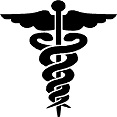Sinusitis
We are located at:
3810 South Florida Ave
Lakeland, FL 33813
 Phone (863) 619-5100
Phone (863) 619-5100
 Fax (863) 508-7242
Fax (863) 508-7242
View All Of Our Locations
Lakeland, FL 33813
 Phone (863) 619-5100
Phone (863) 619-5100 Fax (863) 508-7242
Fax (863) 508-7242View All Of Our Locations
Website designed by WRS Health © 2025


